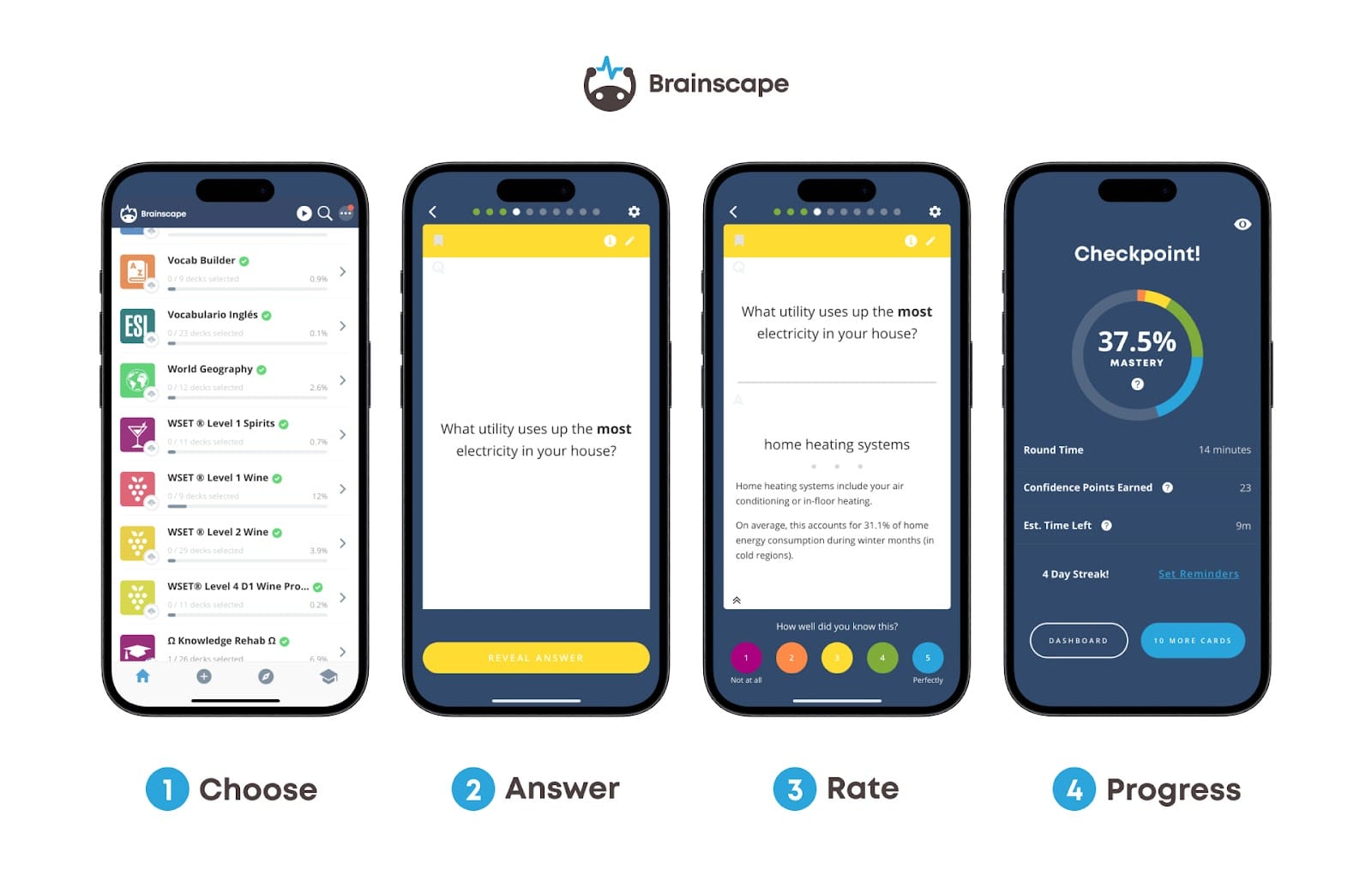You’re sitting at your desk, whispering vocab terms like a wizard casting spells.
“Mitochondria … is the powerhouse … of the cell.”
“Biblioteca ... is the library ... of Spain.”
Sound familiar? It turns out that reading out loud might not just make you feel like a genius—it might actually help you become one.
Speaking your study material aloud is one of the most underrated memory hacks out there. It engages your brain in new ways, turns passive reading into active recall, and might just be the secret sauce for locking knowledge into your long-term memory.
So, warm up those vocal cords—we’re about to explore why talking to yourself (in the name of learning) is actually a power move.
Reading Out Loud and Memory
The Production Effect
When we read, we use the visual pathways in our brain to form memory links. We remember the material because it was something we saw.
People who have a photographic memory are extraordinarily good at making these kinds of memory connections. For the rest of us, relying only on visual memory may leave us with many gaps, so we have to find other ways to remember things.
When reading out loud, we form auditory links in our memory pathways. We remember ourselves saying it out loud, forming auditory as well as visual links.
Art Markman, Ph.D., writes in his blog in Psychology Today about the production effect, which explains exactly why reading out loud causes us to remember better. In a study where learners were given a list and asked to read half of it out loud and half of it silently, they were able to remember the part of the list they read out loud a lot better than the part of the list they read silently.
Reading aloud creates a memory link to the actual production of the word, hence the production effect.
Connecting to What You Read
However, you should remember that simply reading your entire textbook before an exam will most probably do nothing for you—even if you read it all out loud.
Why is this? It’s because simply reading without categorizing, asking questions, and making connections does not do anything to organize the material in your mind.
If you do not read your textbook actively, you do not have anything to anchor what you have read into your memory. Your vocalizations need to accompany your more diligent reading activities if you truly want to benefit from reading aloud.
FAQ: Does Reading Out Loud Cause You to Remember Things Better?
Does reading out loud improve memory?
Yes, reading out loud can significantly enhance memory retention due to a phenomenon called the “production effect.” When you speak words aloud, your brain encodes them both visually and auditorily, creating multiple memory traces that strengthen recall.
Are there any benefits to reading out loud?
Absolutely. Reading out loud engages more of your senses, increases focus, and promotes active engagement with the material. It can also improve comprehension, especially when explaining concepts aloud as if teaching someone else.
Does reading help you memorize?
Reading can support memorization, especially when paired with active study techniques like summarizing, questioning, or using spaced repetition tools. Silent reading helps with comprehension, but reading aloud may be more effective for committing information to long-term memory.
Reading Out Loud Can Help If You Do It Right
Reading out loud can boost your studying—but not if you’re just droning through your textbook like a zombie narrator.
The trick isn’t just mouthing the words. It’s engaging with them. Think of it less like reading and more like performing: you’re explaining concepts, asking questions, maybe even throwing in dramatic pauses for flair. That’s how your brain actually starts paying attention.
Our favorite hacks?
- Pretend you’re teaching the topic to someone else. (Stuffed animals make excellent students.)
- Read flashcards out loud and explain why the answer is correct—like you're on a game show, and the grand prize is passing your exam.
- Record yourself reading tricky concepts, then listen back later like it’s your personal learning podcast.
Brainscape makes this ridiculously easy. Our smart, adaptive flashcards feed you bite-sized facts just when you’re about to forget them.

Read the question out loud, try to answer it, and then explain your answer. It’s active recall meets spaced repetition meets future-you acing your test.
So go ahead—talk to yourself. Just make sure you’re doing it with purpose ... and preferably with Brainscape.
Additional Reading
- How to read a textbook—and remember what you’ve read
- How to learn a language by reading
- How to Read Faster and Better
References
Forrin, N. D., & MacLeod, C. M. (2017). This time it’s personal: the memory benefit of hearing oneself. Memory, 26(4), 574–579. https://doi.org/10.1080/09658211.2017.1383434
Haussamen, B. (1993). The Passive-Reading Fallacy. Journal of Reading, 38(5), 378–381. https://www.jstor.org/stable/40033254
MacLeod, C. M., Gopie, N., Hourihan, K. L., Neary, K. R., & Ozubko, J. D. (2010). The production effect: Delineation of a phenomenon. Journal of Experimental Psychology Learning Memory and Cognition, 36(3), 671–685. https://doi.org/10.1037/a0018785
Markman, A. (2010, May 11). Say it loud: I’m creating a distinctive memory. Psychology Today. https://www.psychologytoday.com/intl/blog/ulterior-motives/201005/say-it-loud-i-m-creating-distinctive-memory
